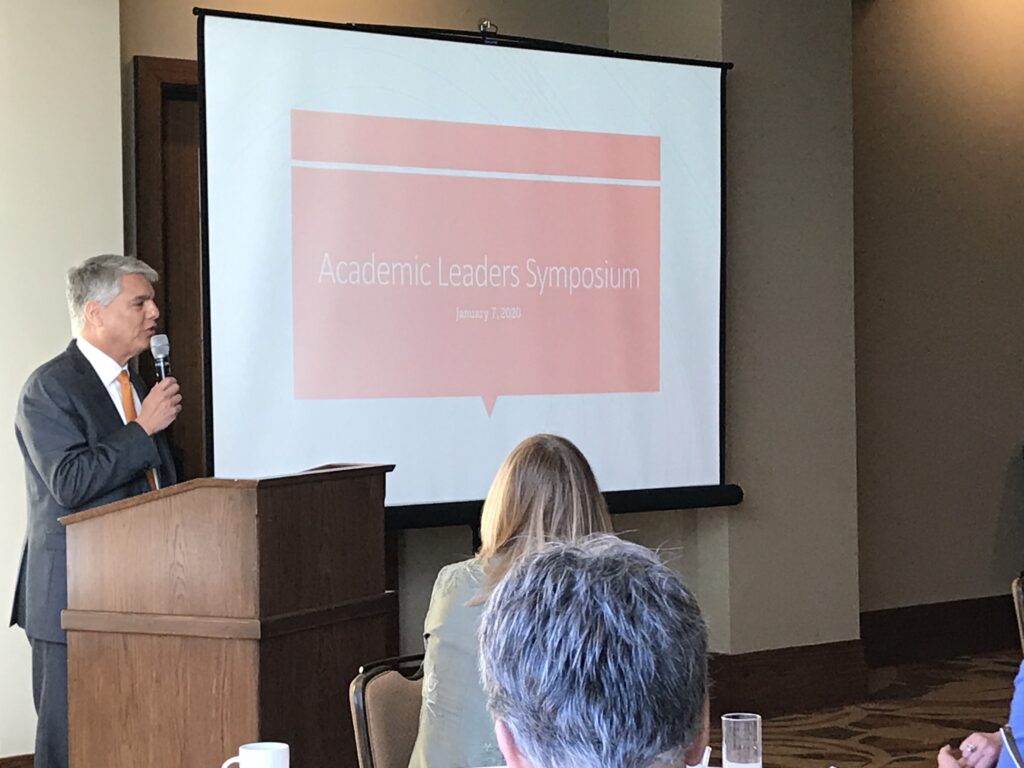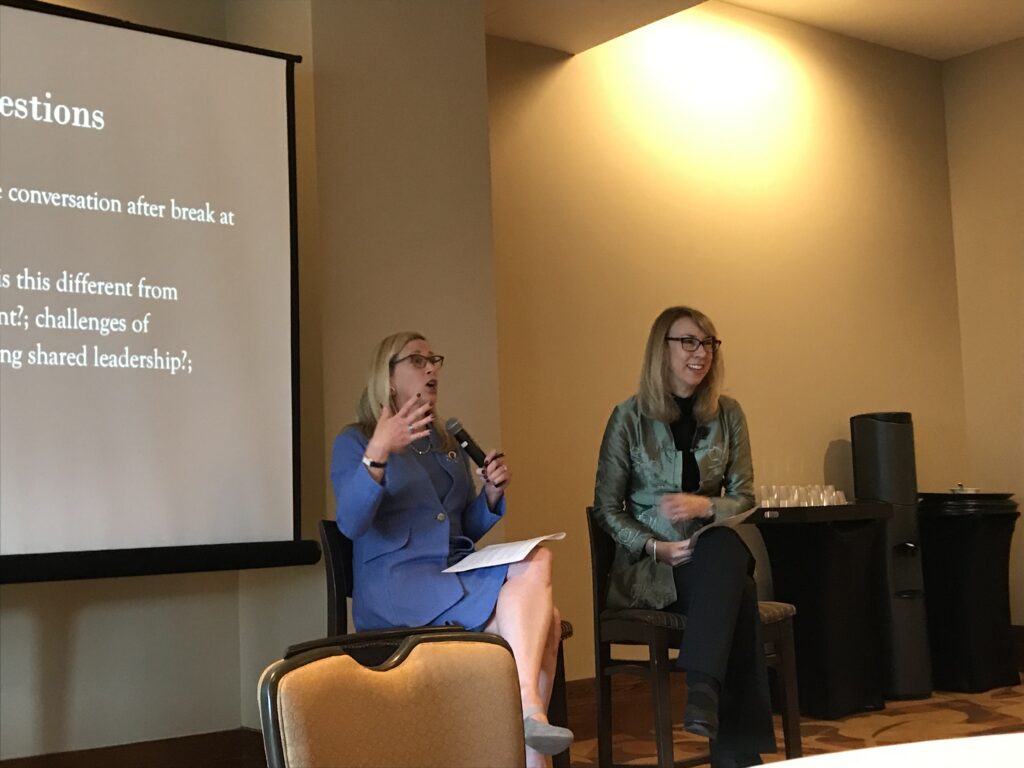Academic leaders across campus converged for the 5th Academic Leadership Symposium on January 7, 2020, at the AT&T Conference Center to discuss new leadership approaches in higher education and focus areas for the coming school year.
The purpose of the event is to analyze and discuss a range of critical issues impacting the university and to sharpen our approaches to planning and management within our organizations.
Topics discussed throughout the day included equity and inclusion in faculty hiring and retention, shared leadership, campus climate and what connects us, and strategies for holding difficult conversations.
The Symposium opened with remarks from President Greg Fenves and Provost Maurie McInnis who discussed campus climate and challenges faced last year before outlining goals and how we will continue to grow our impact at UT Austin and around the world. Provost McInnis emphasized the importance of faculty participating in the upcoming COACHE survey. Responses to questions about overall faculty job satisfaction and campus climate will be used to inform broader initiatives to support faculty.
The opening remarks were followed by a keynote address on shared leadership from Adrianna Kezar, co-director of the Pullias Center for Higher Education, who discussed the power in collaboration among colleges and schools as a way to solve complex problems and support culture shifts on campus. She also reiterated the importance of including faculty from all stages of their careers.
“We can’t really engage every voice or bring together constructive problem solving unless we have diverse groups voicing their opinions. It’s an important step toward shared leadership,” Kezar added.
Kezar’s presentation was followed by a Q&A with Provost McInnis who provided time for a deeper conversation around best practices for creating a climate for shared leadership to flourish.
The morning continued with a presentation from Edmund T. Gordon, vice provost for diversity, who focused on hiring, recruitment and retention strategies for faculty members from diverse groups.
“Demographics are changing. Knowing that our campus community is minority-majority, our university faculty and staff should reflect the community we are serving. It’s a disservice to our students if they don’t have proper representation,” said Gordon.
Citing retention as a major challenge, Gordon proposed ways to retain faculty from diverse groups to ensure they are valued and supported during their time at the University.
The afternoon wrapped with additional keynotes and Q&As from:
- Paul Goldbart, Dean, College of Natural Sciences; Mary Ann Rankin Leadership Chair and Professor of Physics
- Susan Harnden, Director of HealthPoint
The Academic Leadership Symposium is organized and produced by the Faculty Affairs team in the Office of the Executive Vice President and Provost and takes place every two years.

